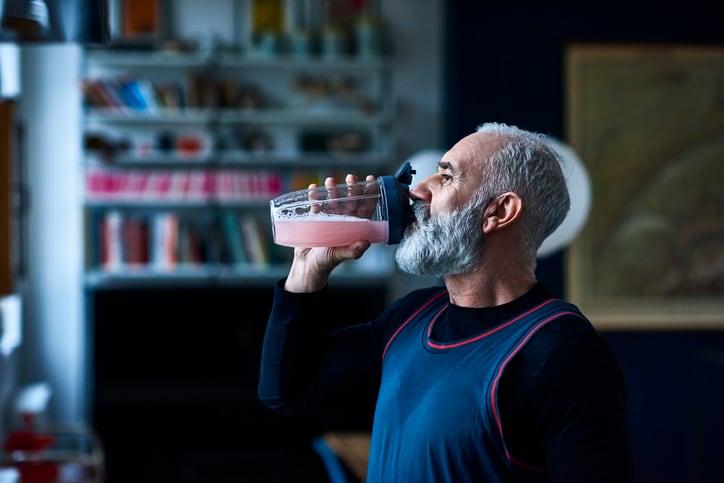According to a study involving 308 participants, supplementation was significantly more effective than dietary advice alone. It reduced by more than half both the number of individuals whose nutrient intakes fell below dietary reference values (DRVs) and the number of nutrients per person that failed to meet DRVs.
“This enables older people to meet more of their individual reference nutrient intakes for a wide range of vitamins, minerals and trace elements than with food and dietary advice alone,” wrote researchers from the University of Southampton in the journal Nutrients.
The study was supported by Danone Nutricia Global Research Centre.
Addressing malnutrition in older people
Oral nutritional supplements (ONS) are indicated for patients who are unable to meet dietary requirements through food alone. Disease-related malnutrition may occur due to symptoms that limit food intake, treatments such as surgery or inflammation.
The benefits of ONS, such as improving energy and protein intake, have been previously reported. However, the researchers noted that the effects of ONS on the intake of other dietary constituents are less explored.
Disease-related malnutrition in older people causes multiple micronutrient deficiencies, which impact health, well-being and function.
“Furthermore, deficiency of many vitamins and trace elements can reduce appetite and predispose to more severe or additional deficiencies,” the researchers noted.
They explained that, to maximize overall nutrient intake, ONS should not suppress appetite, allowing older people to continue obtaining nutrients from food as well..
“Outcomes are more likely to improve or be enhanced when there is little or no displacement of the diet with ONS (e.g., no suppression of appetite or even appetite stimulation, with the nutrients in the ONS adding to what is eaten in the diet),” they wrote.
The study noted that there is also remarkably little information on the effects of ONS/dietary advice on trace and micronutrients in an aging community setting.
“Evidence from this trial, and others, suggests that liquid, more energy-dense formats have little suppressive effect on appetite and food intake, being largely additive (as opposed to displacing) to food intake in malnourished individuals,” the researchers wrote.
Study details
The study involved 308 free-living individuals over the age of 50 with disease-related malnutrition, recruited from general practice surgeries in the UK.
Participants were randomly assigned to receive either dietary advice alone (DA group) or the same dietary advice plus ready-to-drink oral nutritional supplements provided by Nutricia Ltd. (ONS + DA group). They had a daily target of at least 600 kcal and 16 g protein (250–400 mL) for 12 weeks.
Researchers collected data at weeks 4, 8 and 12, and a dietitian assessed dietary intake using a 24-hour recall.
The results revealed that ONS + DA was associated with “significantly greater total energy and nutritional intakes, with 25/29 nutrient intakes significantly higher than with DA alone,” the researchers wrote.
Over 90% of the energy and nutrients consumed in the supplement were additive to the diet, with little or no displacement of nutrients.
“ONS + DA more than halved the number of people with nutrient intakes that failed to meet DRVs and the number of nutrients per person that did not meet DRVs compared to DA alone,” the researchers wrote.
They called for further research to confirm the mechanisms involved and recommended that healthcare professionals regularly monitor compliance, body weight and outcomes relevant to the individual, such as quality of life and muscle strength.
Source: Nutrients, 2025, 17(15), 2474. doi: 10.3390/nu17152474. “Randomised Trial Shows Readymade Oral Nutritional Supplements in Older Malnourished People in the Community Improve Total Nutrient Intakes and Meet More Dietary Reference Values Without Reducing Intake from the Diet”. Authors: M. Elia et al.




